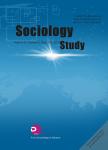Tribal Councils as a Decision-Making Mechanism for Post-disaster Reconstructions: A Case Study of Ulaljuc
Tribal Councils as a Decision-Making Mechanism for Post-disaster Reconstructions: A Case Study of Ulaljuc作者机构:Chang Jung Christian University Taiwan Meiho University Taiwan Piuma Community Development Association Taiwan National Chung Cheng University Taiwan
出 版 物:《Sociology Study》
年 卷 期:2013年第3卷第4期
页 面:261-268页
学科分类:12[管理学] 1201[管理学-管理科学与工程(可授管理学、工学学位)] 08[工学] 083301[工学-区域发展与规划] 081201[工学-计算机系统结构] 0833[工学-城乡规划学] 0812[工学-计算机科学与技术(可授工学、理学学位)]
主 题:Interim housing tribal council post-disaster reconstruction
摘 要:Since the 1990s, indigenous people in Taiwan have engaged in tribal councils for the purpose of integrating the tribal authority and the modern administrative system. The establishment of tribal councils provides a communicative forum for tribal leaders, village, and the association of community development to make decisions of common tribal affairs. When disasters happen, the internal tribal response strategies and external assistance mechanisms might cooperate through either traditional or modern administrative systems. The research focused on how these organizations, while in interim housing, influenced the reconstruction and rehabilitation after disasters. The research's findings suggested that tribal councils, a pre-existing mechanism, seemed to be an appropriate forum for negotiation and decision-making for tribal affairs.



